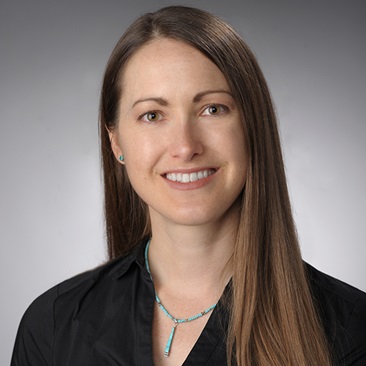Natalie Koch Speaks on ‘Arid Empire’ for Arizona State Library
April 11, 2024
The Maxwell School professor’s recent book is relevant as the state grapples with controversy over a Saudi dairy company’s farming.
Natalie Koch, professor of geography and the environment, recently gave an address for the State of Arizona Research Library’s 2024 Arizona Author Series on connections between desert agriculture in the Southwest United States and Saudi Arabia.
The March 14 talk explored the exchange of colonial technologies in agriculture between the deserts of Arizona and the Arabian Peninsula over the last two centuries, which was the subject of her book “Arid Empire: The Entangled Fates of Arizona and Arabia” (Verso Books, 2023). Through the camel corps of the 1850s to agricultural missions in the 1940s, U.S. planners sought to promote the Arizona desert as an agricultural utopia, a laboratory for modernized techniques that were exchanged with Saudi Arabia, she explained.
This history is relevant today, Koch said, since a Saudi dairy company’s farming in Arizona continues to sustain their dairy industry. She recently published an editorial on the controversial issue in the Arizona Capitol Times. She said it can be viewed as part of a longer history of settler extractivism, international circuits of commercial agriculture, and the displacement of Indigenous knowledge and science.
The author series is supported by the Arizona State Library, Archives & Public Records. Koch’s address received recognition from the Arizona Secretary of State Adrian Fontes, who said, “This month’s Arizona Author Series presentation reminds us that the Arizona Desert is interconnected with the world. Whether you’ve already visited Hi-Jolly’s tomb or are new to the desert, ‘Arid Empire’ has something to teach all of us about our state’s growth.”
Koch also authored “The Geopolitics of Spectacle: Space, Synecdoche, and the New Capitals of Asia” (Cornell University Press, 2018) and numerous articles on the geographies of authoritarianism, nationalism, and the state, as well as the energy transition and the geopolitics of sports in the Arabian Peninsula.
Koch is the undergraduate director for the Geography and the Environment Department, director of the Central Asia and the Caucasus Initiative, and a senior research associate in the Middle Eastern Studies Program. Her areas of expertise include political geography, nationalism, energy and the environment, and Gulf and Arabian Peninsula area studies.
By Michael Kelly
Published in the Spring 2024 issue of the Maxwell Perspective
Related News
Commentary

Dec 3, 2025
Commentary

Dec 2, 2025


